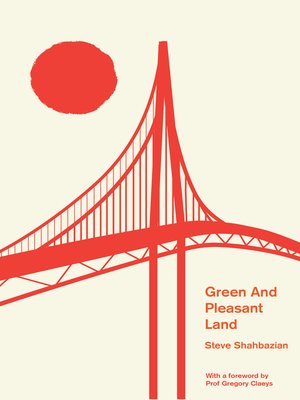
Sign up to save your library
With an OverDrive account, you can save your favorite libraries for at-a-glance information about availability. Find out more about OverDrive accounts.
Find this title in Libby, the library reading app by OverDrive.



Search for a digital library with this title
Title found at these libraries:
| Library Name | Distance |
|---|---|
| Loading... |
State Failure. Social Collapse. England is on the Edge...
In an England of the future, a booming economy masks rising violence. Seeking to become Prime Minister, controversial Chief Executive, Roger Tyson, warns that the country is on the verge of collapse. However, his aggressive populism proves divisive. Friends say he wants to save his country, while opponents accuse him of seeking to become dictator.
As society disintegrates, Roger finds himself drawn ever deeper into a web of claims and allegations. Is the government secretly aiding militants planning to destroy society? Is he covertly working with hardliners to impose military rule? With the country hurtling towards meltdown, England could be beyond saving....
Read Green and Pleasant Land – a dystopia for the 21st century
An Interview with the Author
What Inspired you to write Green and Pleasant Land?
Having read George Orwell's Nineteen Eighty-Four, Aldous Huxley's Brave New World and Anthony Burgess's A Clockwork Orange when growing up, I'd always wanted to write a dystopian novel of my own.
How does your novel relate to today?
The totalitarian states and regimented societies of much dystopian fiction felt very 1930s or 40s, whereas the opposite – a weak government and a fragmented society – felt much more current. After the 2008 financial crisis, I wondered: could a first world country become a failed state?
You describe it as a "journey into the centre of power." Why?
Nineteen Eighty-Four only shows the reader as much as Winston Smith is allowed to see, but I always wanted to know what happened inside the Inner Party. I wanted to get right to the heart of dystopia and find out what happens at the centre of power.
So, this is a "dystopia from above?"
Yes, in a sense. Dystopian novels usually look at their world from the perspective of someone powerless, but I wanted to see what dystopia might look like from the perspective of someone powerful – Nineteen Eighty-Four as seen by O'Brien or Brave New World by Mustapha Mond. Hence, we see the world of Green and Pleasant Land through the eyes of Roger Tyson.
Roger Tyson. What makes him unusual?
Although the story is told from his point of view, we also hear his opponents. Is he the hero trying to save his country that he claims to be or is he the power-hungry villain that his opponents allege? As we get deeper into the story, we find out more, but can we ever know truly what lies inside another person's heart?
Why do people in Green and Pleasant Land speak a Japanese-ified English?
Every dystopian world is a place that is both familiar and strange. I'd been intrigued by the fact that Japan had deliberately absorbed Western culture after the Meiji Restoration of 1868 and made it its own, so I imagined the process in reverse. I was also fascinated by the Japanese bubble of the late 1980s, so I imagined a bubble so extreme that it threatened the stability of society itself.
How does your novel respond to dystopian literature?
There are many interesting threads running through the dystopian novels of the 20th century – so many, that it inspired me to write A Century of Dystopia – but one thing they all have in common is that, although they respond to the pressing themes of their day, they also have universal themes, such as freedom and control, at their core. This is why I wrote Green and Pleasant Land as a journey into the centre...







